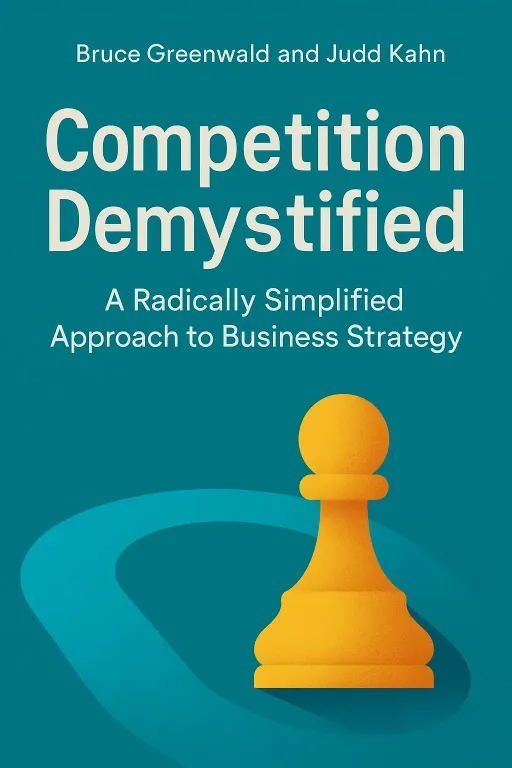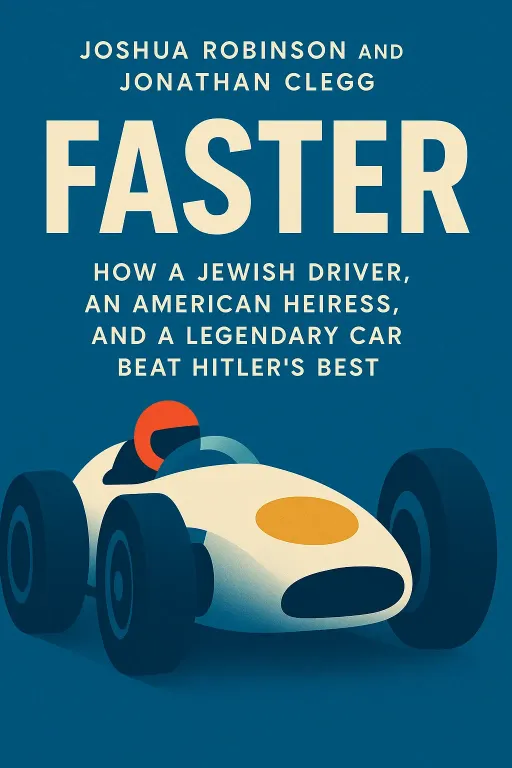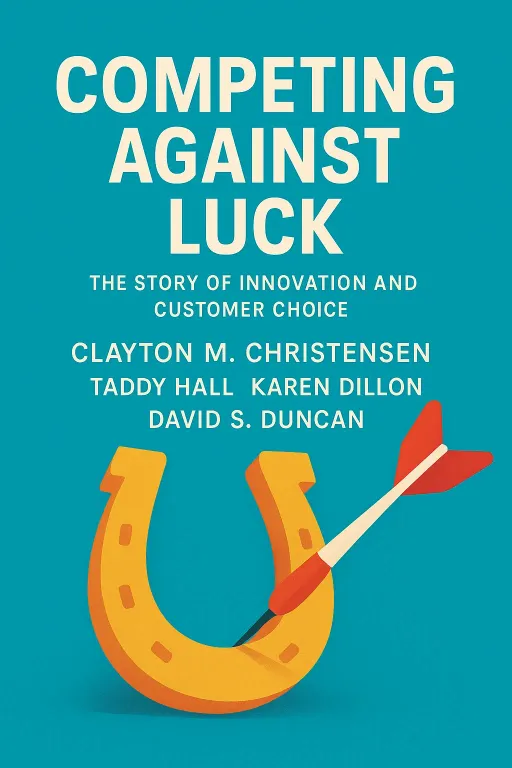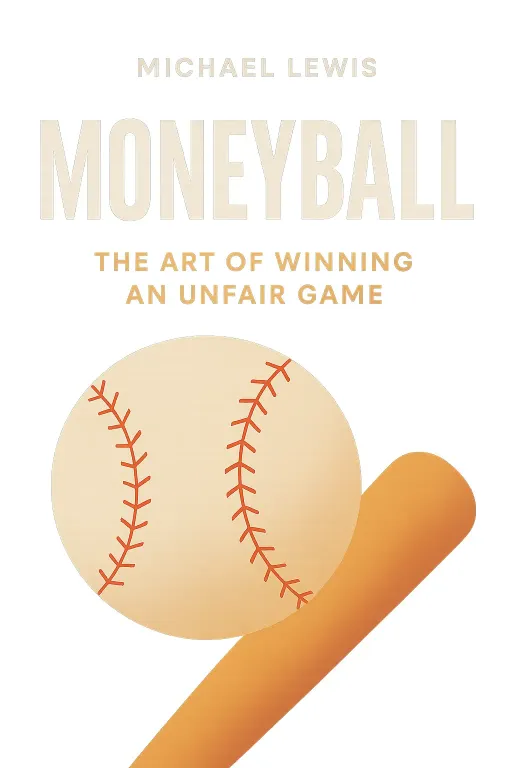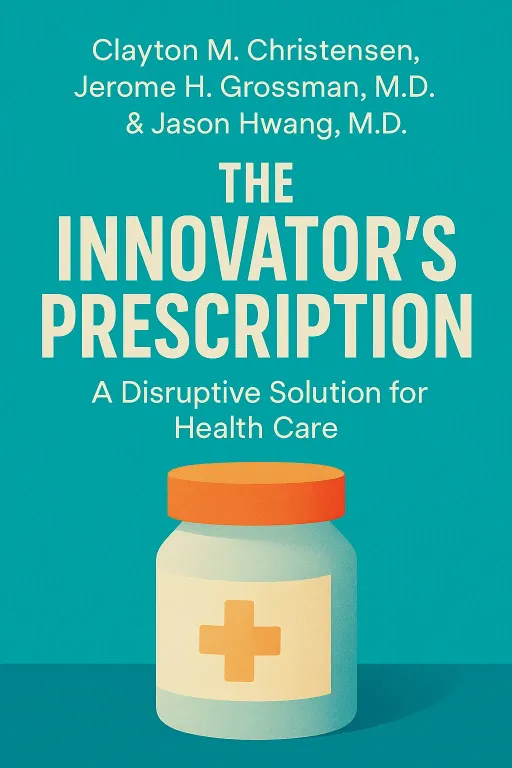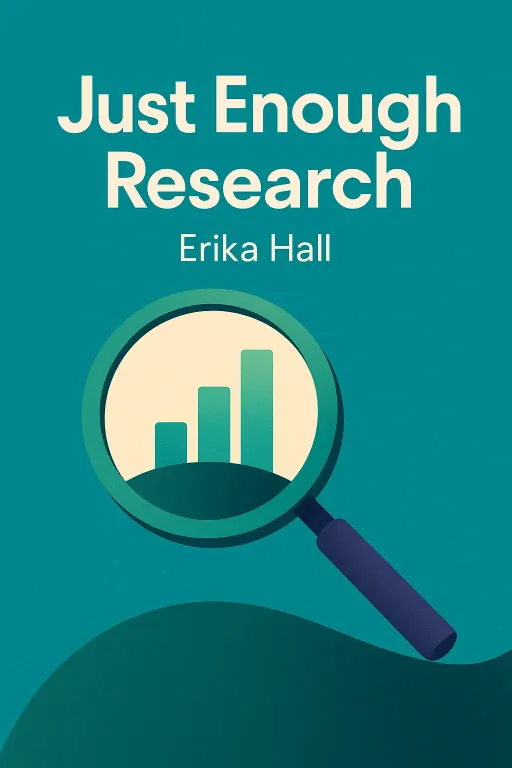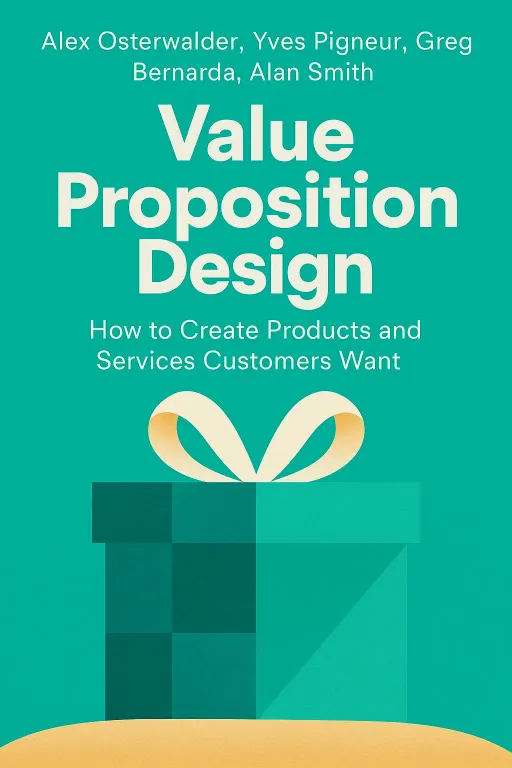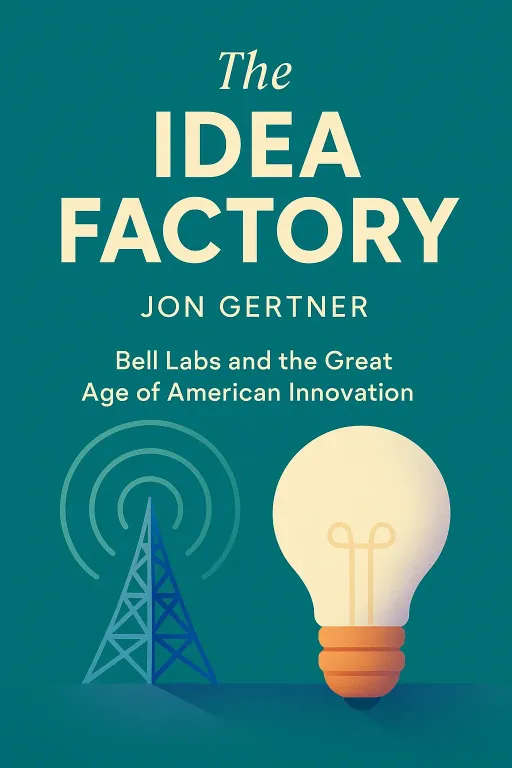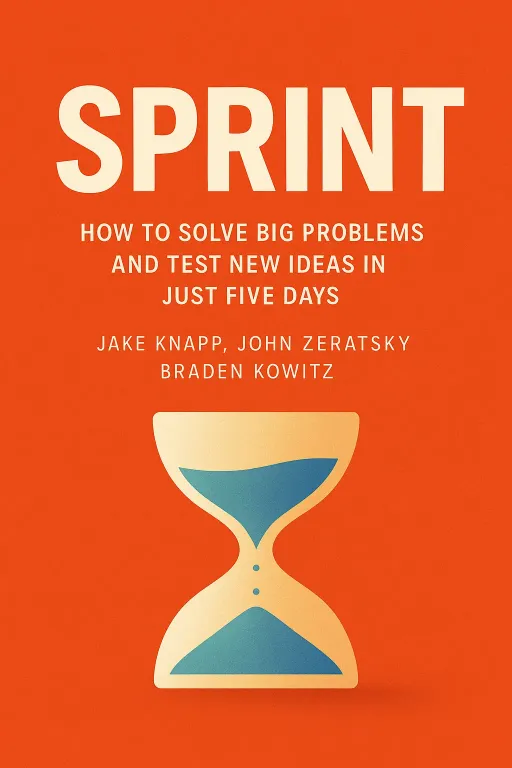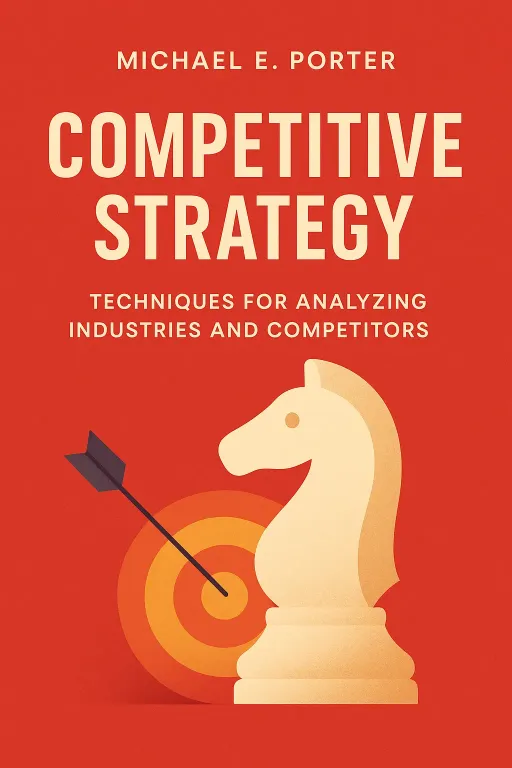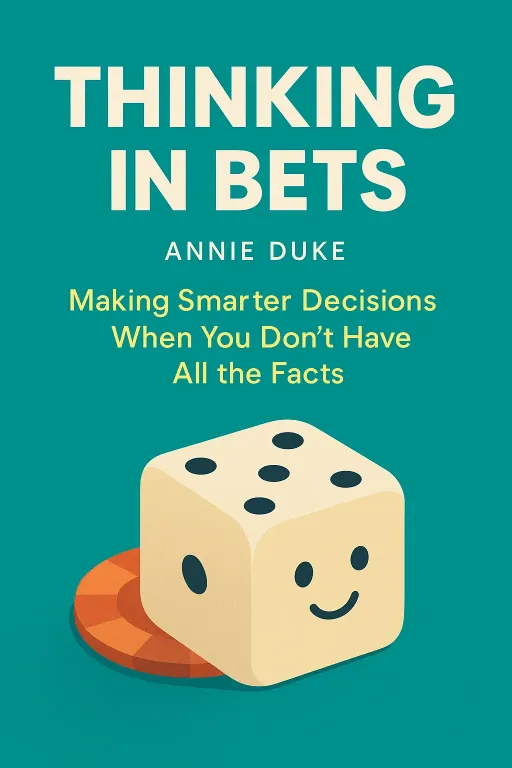
The Art of Smart Bets
12 minMaking Smarter Decisions When You Don’t Have All the Facts
Golden Hook & Introduction
SECTION
Joe: Imagine it’s the final seconds of the Super Bowl. Your team is on the one-yard line, poised to win. The coach calls a pass play. It’s intercepted. You lose. Was that the worst decision in sports history? Or was it a brilliant bet that just got unlucky? Lewis: That single question cuts to the heart of one of the biggest errors we all make in judging ourselves and others. And today, we're diving into former professional poker player Annie Duke's "Thinking in Bets" to dismantle that error. It’s a book that uses the poker table as a laboratory for life, showing us how to make smarter decisions when we don't have all the facts. Joe: And we're going to tackle this from three perspectives. First, we'll explore that great deception of 'resulting'—why we wrongly blame good decisions for bad outcomes. Lewis: Then, we'll examine the shaky architecture of our own beliefs and how a simple, two-word question can force us to become more rational. Joe: And finally, we'll learn how to become mental time travelers, using powerful techniques to make smarter choices for the future versions of ourselves we so often betray.
The Great Deception: Why Good Decisions Can Lead to Bad Outcomes
SECTION
Joe: So let's go back to that moment, Lewis. Super Bowl XLIX, 2015. The Seattle Seahawks versus the New England Patriots. The world is screaming 'Run the ball!' Lewis: Absolutely. You have Marshawn Lynch, nicknamed "Beast Mode," one of the most powerful running backs in the league. He's already proven he can punch through the defensive line. It feels like the most obvious, certain path to victory. Joe: Exactly. There are 26 seconds left on the clock. The Seahawks have the ball on the Patriots' one-yard line, and they have one timeout left. A touchdown wins the game. Instead of handing it to Lynch, Coach Pete Carroll calls for a pass. Quarterback Russell Wilson throws a quick slant. And in a flash, Patriots cornerback Malcolm Butler jumps the route, intercepts the pass, and the game is over. The Seahawks lose. Lewis: And the world explodes. The immediate verdict was unanimous: worst play call in the history of sports. Pundits, fans, even other players were merciless. Carroll was branded an idiot who snatched defeat from the jaws of victory. Joe: But here's where Annie Duke steps in and asks us to rewind the tape, not on the play, but on our own thinking. She forces us to separate the decision from the result. Let's look at the decision itself, in the moment, with the information Carroll had. First, passing the ball stops the clock if it's incomplete, preserving their final timeout and giving them two more chances to score. A run, if stopped, would force them to burn that timeout, leaving them with only one last, frantic play. Lewis: And the data from that season showed that runs from the one-yard line were stuffed for no gain or a loss more often than people think. Furthermore, the Patriots had sent in their goal-line defense, specifically designed to stop a run up the middle. The pass play was designed to counter that specific formation. So, probabilistically, the pass play had a very high chance of success and offered better clock management. Joe: It was a sound, calculated bet. It just happened to land on the small percentage of failure. This is a textbook case of what Duke calls 'resulting.' We're fusing the decision quality with the outcome quality, and it’s a massive cognitive error. Lewis: It's the same logic as the drunk driver. If a person drives home drunk and makes it safely, we don't say, "Wow, what a great decision that was!" We say, "That was an idiotic, reckless decision, and you got incredibly lucky." The outcome doesn't change the quality of the initial choice. Pete Carroll made a good decision and got incredibly unlucky. Joe: And this is so liberating when you apply it to your own life. Think about a project at work. You do all the research, you build a great plan, you execute it perfectly, but a competitor launches a surprise product a week before you, and your project fails. Our instinct is to say, "My plan was terrible. I'm a failure." Lewis: When in reality, the plan might have been excellent. You just ran into bad luck. Duke argues that if we don't learn to separate these two things—decision quality and luck—we can't learn properly. We'll end up "fixing" things that weren't broken and repeating mistakes we got away with through sheer luck. Joe: It’s about being a better historian of our own lives. We have to resist the simple narrative that good things happen because we're smart and bad things happen because we're dumb. The world is far more random than that. Lewis: And that randomness is terrifying, which is why we cling to these simple narratives. It gives us a feeling of control. But real control, Duke argues, comes from accepting the uncertainty and focusing only on what we can actually influence: the quality of our decision-making process.
The Architecture of Belief: How We Build Our Reality on Shaky Ground
SECTION
Lewis: But this habit of 'resulting' is fueled by something deeper, isn't it, Joe? It's not just a mistake in logic; it's rooted in how we construct our beliefs in the first place. We think we're rational, but our minds are often working to protect a story we've already written. Joe: Absolutely. Duke says every decision we make is a bet on what we believe to be true about the world. The problem is, we form those beliefs in a really haphazard way. There's a classic study from 1951 that illustrates this perfectly. It involved a notoriously violent football game between Dartmouth and Princeton. Lewis: I can only imagine the kind of chaos that ensued in an Ivy League football game in the 50s. Probably a lot of broken monocles and sternly-worded letters. Joe: It was brutal. So brutal that the psychologists Albert Hastorf and Hadley Cantril saw a perfect opportunity for an experiment. They filmed the game and then showed the exact same footage to a group of Dartmouth students and a group of Princeton students. They asked them to count the number of rule infractions committed by each team. Lewis: The same objective evidence. The same film. You'd expect the numbers to be pretty close, right? Joe: Not even remotely. Princeton students, on average, saw the Dartmouth team commit more than twice as many fouls as their own team. But the Dartmouth students saw an equal number of infractions on both sides. They concluded the game was just a rough, hard-fought battle. They were literally watching two different games. Lewis: And that's the terrifying part. They weren't lying. Their brains were actively filtering reality to confirm the belief they walked in with, which was, "Our team is noble and plays fair; their team is dirty and aggressive." This is a phenomenon called 'motivated reasoning.' We use our intelligence not to find the truth, but to build a case for what we already want to be true. Joe: It’s why political arguments on the internet are so futile. People aren't exchanging information; they're defending identities. So, how do we break out of this? Duke offers a stunningly simple, yet powerful tool: the question, "Wanna bet?" Lewis: It sounds almost like a playground taunt, but the psychology behind it is profound. The moment someone asks you to put stakes on your belief—even imaginary stakes—your entire mindset shifts. You're no longer a lawyer passionately defending your client, which is your ego. You suddenly become a detached scientist or an intelligence analyst, forced to ask, "Okay, what's the actual evidence here? How certain am I, really? What are the chances I'm wrong?" Joe: It forces you to consider the probability, not just the possibility. I can think of so many arguments I've had where, if my friend had just looked at me and said, "Wanna bet fifty bucks on that?" I would have immediately softened my stance. I would have said, "Well, okay, I'm not one hundred percent sure, but I feel strongly that..." And that little crack of doubt is where learning begins. Lewis: Exactly. It introduces intellectual humility. It turns an absolute statement into a probabilistic one. Instead of saying "This will happen," you start thinking, "I believe there's an 80% chance this will happen." That 20% of uncertainty is the space where you can listen, adapt, and avoid the trap that the Dartmouth and Princeton fans fell into. It’s a cognitive circuit-breaker.
Mental Time Travel: Hacking Your Future Self for Better Decisions Today
SECTION
Joe: So we've learned to judge our decisions by the process, not the result. And we've learned to challenge our own beliefs with a simple "Wanna bet?". But so many of our worst decisions, Lewis, are battles we have with ourselves—specifically, our present self versus our future self. Lewis: Ah yes, the eternal conflict. The comedian Jerry Seinfeld has a brilliant bit about this. He talks about "Night Guy" and "Morning Guy." Night Guy wants to stay up late watching movies. When he thinks about how tired he'll be after only five hours of sleep, he just says, "That's Morning Guy's problem. I'm Night Guy!" And then, of course, Morning Guy wakes up exhausted and miserable, cursing Night Guy. Joe: We all have a Night Guy. It's the part of us that eats the whole pint of ice cream, skips the gym, or puts off a difficult project. This is a psychological principle called 'temporal discounting.' We value immediate gratification far more than future rewards or consequences. The future feels abstract, like a different country inhabited by a stranger who happens to have our name. Lewis: And that stranger, our future self, is often left to clean up the mess. So how do we bridge that gap? How do we make our future self more present in our current decisions? Duke says we need to engage in 'mental time travel.' Joe: One of the most powerful techniques for this is the 'premortem,' a concept developed by psychologist Gary Klein. It's the opposite of a postmortem. In a typical planning meeting, a team asks, "How can we make this project succeed?" Everyone is optimistic, and no one wants to be the negative voice in the room. Lewis: Right, you get groupthink. Everyone's afraid to point out potential flaws. Joe: In a premortem, the leader says, "Okay, everyone. I want you to imagine it's six months from now. The project has failed. It's a complete and utter disaster. Now, take two minutes and write down every possible reason why it failed." Lewis: That is brilliant. It completely flips the script. It makes it safe, even required, to be critical. It bypasses our natural optimism bias and allows the team to identify real, tangible risks that they might have otherwise ignored. You're not being negative; you're being a good detective, solving the crime before it even happens. Joe: Another form of mental time travel is the 'Ulysses contract.' This comes from the story of Odysseus, who knew he couldn't resist the deadly song of the Sirens. So, what did he do? He made his present self, the rational Ulysses, take action to constrain his future self, the bewitched Ulysses. He had his crew tie him to the mast of the ship and plug their own ears with beeswax. Lewis: He pre-committed to a course of action. He made a bet against his own future weakness. We can do this in small ways. If you know you'll hit the snooze button, put your alarm clock across the room. If you know you'll spend too much on your credit card, you can call the bank and lower your limit. You're the rational Ulysses making a plan to thwart the irrational one. Joe: These aren't just clever tricks; they are strategies for aligning our actions with our long-term goals. They are ways of having compassion for our future self, ensuring that the person we become is someone we're proud of, not someone who's constantly paying for the short-sighted bets of the past.
Synthesis & Takeaways
SECTION
Joe: So, when you boil it all down, this book is a powerful manual for navigating an uncertain world. First, we have to break the habit of 'resulting'—judge the decision-making process, not the outcome. A good bet can still lose. Lewis: Second, we have to recognize that our beliefs are not facts; they are bets. And we can improve their accuracy by challenging them, by being willing to ask ourselves, "Wanna bet?" and embracing the humility that comes with uncertainty. Joe: And finally, we need to become mental time travelers. We have to use tools like premortems and Ulysses contracts to bring our future self into the room when we're making decisions today, protecting them from our present-moment impulses. Lewis: It's a profound shift in thinking. And it leaves us with a final, actionable question. The next time you face a tough choice, don't just ask what you want to do now. Ask yourself: Ten minutes from now, ten months from now, and ten years from now, which decision will my future self thank me for? That's not just thinking in bets; it's investing in a better version of you.
